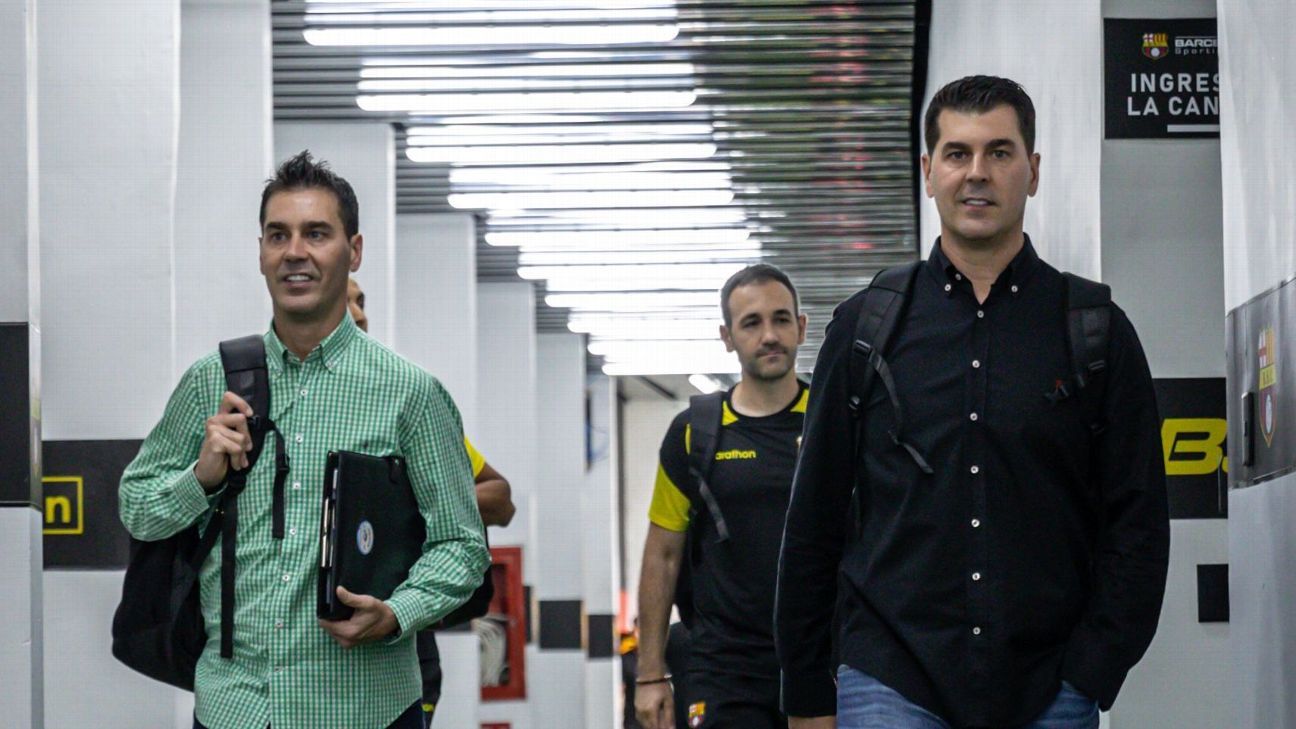Following a string of disappointing results, particularly in the latter halves of recent matches, coach Ismael Rescalvo has publicly addressed the team’s second half performance. The manager’s analysis has brought renewed focus on addressing the issues contributing to the team’s struggles after the halftime break. Let’s delve into Rescalvo’s insights and the potential solutions on the horizon.
Ismael Rescalvo’s Analysis of Second Half Performance
Rescalvo has been meticulously reviewing game footage and performance data to pinpoint the exact reasons behind the team’s dip in form during the second half. According to a statement released by the club’s media relations department, his analysis centers around three key areas: tactical adjustments by opponents, player fatigue, and a decline in mental focus. “We’ve observed a pattern where opposing teams adapt their strategies after halftime, often targeting our weaknesses that become more apparent as the game progresses,” Rescalvo reportedly stated during a closed-door meeting with the team, according to a source within the club. “We need to be more proactive in anticipating these changes and reacting accordingly.”
Tactical Flexibility and Adaptability
One of the primary concerns highlighted by Rescalvo is the team’s perceived lack of tactical flexibility. Opponents have successfully exploited this by making strategic changes at halftime, catching the team off guard. As Dr. Anya Sharma, a sports performance analyst at the Institute of Athletic Excellence, notes, “Modern football demands adaptability. Teams that can seamlessly transition between different formations and playing styles have a significant advantage.” Rescalvo is reportedly working on implementing new training drills to improve the team’s ability to switch tactics mid-game.
Addressing Player Fatigue
Another critical factor identified by Rescalvo is the issue of player fatigue. The intensity of modern football requires players to maintain peak physical condition throughout the entire match. Rescalvo believes that fatigue contributes to poor decision-making and a decline in overall performance during the second half. “We are exploring different strategies to manage player workloads, including optimizing our substitution patterns and implementing more effective recovery protocols,” stated a member of the team’s coaching staff, speaking on condition of anonymity. According to data from the team’s sports science department, the average distance covered by players in the second half has decreased by approximately 8% compared to the first half, suggesting a noticeable drop in energy levels.
Mental Fortitude and Focus
Beyond physical conditioning, Rescalvo also emphasizes the importance of mental fortitude and focus. Maintaining concentration and making sound decisions under pressure are crucial for success. Rescalvo is working with the team’s sports psychologist to develop mental training techniques to improve their ability to stay focused and resilient, even when facing adversity. “Mental toughness is just as important as physical strength,” Rescalvo has stated, emphasizing that the team needs to remain composed and confident regardless of the scoreline or game situation. According to a 2023 study published in the *Journal of Sports Psychology*, athletes who engage in regular mental training exercises demonstrate improved performance under pressure.
Potential Solutions and Future Strategies
To address the identified issues, Rescalvo is implementing a multi-faceted approach. This includes refining tactical strategies, optimizing player conditioning and recovery, and enhancing mental training programs. The team is also experimenting with different formations and player combinations to find the optimal balance and improve overall performance. The impact of these changes will be closely monitored in upcoming matches, with the coaching staff making adjustments as needed. A spokesperson for the club confirmed that investment in new sports science technology is expected to be approved in the next quarter, further assisting in monitoring player fatigue and performance data.
In conclusion, Ismael Rescalvo’s focused analysis of the team’s second half struggles underscores the importance of tactical adaptability, physical conditioning, and mental resilience in modern football. By addressing these key areas, the team aims to overcome its recent challenges and achieve consistent performance throughout the entire match. The road ahead will require dedication and hard work, but with Rescalvo’s leadership and a commitment to continuous improvement, the team is poised to turn the tide and achieve its goals.
